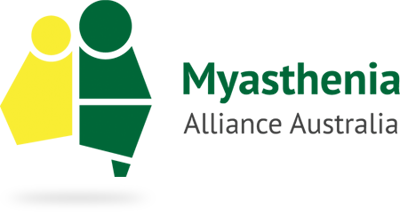 Significant initiatives dominated a busy and productive year for the MAA Board.
Significant initiatives dominated a busy and productive year for the MAA Board.
Following the Chairperson’s attendance at the Rare Diseases event in Canberra in February the Board can confidently confirm that the Federal Health Department is very much aware of the rare conditions encompassed by the term, Myasthenia, and that Minister Hunt is personally familiar with the fact that there are difficulties for Australians with this condition in accessing some treatment options. It was a real privilege to be represented at the launch of the very first National Strategic Action Plan for Rare Diseases.
The MAA has continued to partner with Rare Voices Australia in advocating for people with rare disease. It is believed that the MAA played a strongly positive role in bringing about a Parliamentary Inquiry into new drugs and novel medical technologies. This is an enormous topic and the submission closure date has been extended so it will be some time before outcomes can be expected. The MAA posted a submission prior to the original closing date and took a strong focus on broader access to treatments and improved processes to encourage additional research. Dr. Blum provided support for this submission.
PBS status for Rituximab use in myasthenia has been an initial driver behind much of the communication with Federal Government departments. Regrettably, a positive outcome has not yet resulted. However, it is significant progress to confirm that the obstructive legislative issues holding back such a request have now been recognized.
Research has remained a key focus.
Dr. Stephen Reddel and Dr. Katherine Buzzard have invested a great deal of time and effort to see the eNID Project progress through beta testing and onto a group of pilot sites. A ‘soft’ launch may occur in the coming months as it is rolled out more broadly. The MAA Board has remained in close contact throughout the year.
Seeking out and supporting additional opportunities, State based or National, has been on going and there is confidence that a range of projects will come to fruition.
The MAA Medical Advisory Board remained very supportive and always keen to assist our membership as COVID challenges presented and a range of opportunities arose. The support from these busy Specialists is valued. Most sincere appreciation is expressed here.
In July, the MAA Board was extremely delighted to welcome Natalie Windle to the team. Natalie brings new skills, additional connections and broad insights to the team. This gives a compliment of 6 (all of whom are affected by Myasthenia) to take on the growing and diverse workload. Additional Board members would be welcomed.
There is a growing appetite with Government, Researchers and Pharma Companies to develop new patient care models and treatment methods. Understanding how changes may be most effective will be inclusive of consultation with patients. Being asked to share sufferer experiences should be anticipated. This information collection may take many forms. It is vitally important that the MG community take up every opportunity to discuss the condition and the care available.
Raising Awareness continues at every opportunity. The Board expects to encounter many new forms of communication in a rapidly changing world and is prioritizing the exploring, developing and educating associated with these new styles. If there are skilled people in the MG community who can assist, they are asked to come forward.
The MAA Board is only as strong as our community support allows and communicating effectively with our community is essential. Enhancing and broadening contact methods is to be explored in 2021.
Of note, the website has a new URL and it is hoped that readers of this report will bookmark the following. www.myastheniaalliance.org.au
Financially the MAA remains in a strong position.
Susan White
MAA Chairperson
